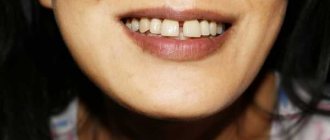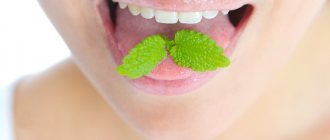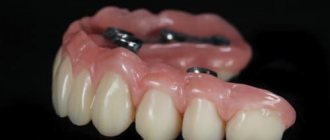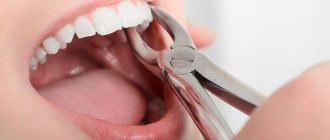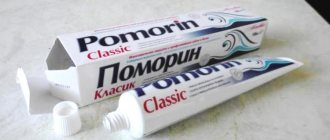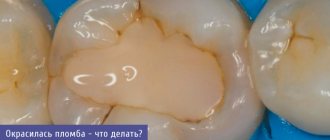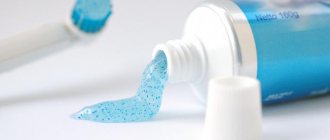After implantation, a realistic copy of it appears in place of the lost tooth. Both in appearance and in feel, the new and old units of the series are almost identical, so the patient quickly gets used to the prosthetic structure. And over time, he often forgets that he needs to treat her with care. The result may be the following situation: the crown has fallen off the implant and now it is unclear what to do with it. In this case, you should not be upset, nor should you try to secure the prosthesis yourself, using glue or other improvised means.
Content:
- Why do crowns fall out?
- When can the prosthesis be returned?
- When it is impossible to return a fallen prosthesis to its place 3.1. Loss of prosthesis with stump or pin 3.2. It is necessary to re-treat the dental canals 3.3. Loss along with natural root
- General recommendations in case of crown loss
- Preventing the problem from occurring
In dental practice, situations sometimes occur when a crown falls off.
Having realized what happened, the patient usually experiences fear. He experiences a state of panic, as he fears that it will no longer be possible to restore the repeatedly destroyed unit. No need to worry too much. The first thing you need to do is urgently seek qualified dental care. The doctor will assess the condition of the stump and the fallen prosthesis and tell you whether everything can be returned to its place.
Preventing Looseness
The service life depends on precise manufacturing, the quality of the materials used and the required hygiene. If the product is formed poorly, it will break under chewing pressure. A hole may form in it, even if the structure is metal-ceramic. Here the cause does not depend on the patient; the lost tooth is replaced by a dentist. Why is this happening? Perhaps the treatment was carried out in a low-level clinic, or the technician made mistakes at the stage of manufacturing the prosthesis.
If the product is made correctly, is well fixed, and can withstand the stress of chewing food, then often the loss occurs due to the fault of the client. The dentist will be able to restore the tooth immediately after the patient contacts him. To prevent complications, the following is recommended:
- Once every six months you need to have an examination with a dentist.
- Professional teeth cleaning is performed periodically.
- Do not use toothpicks.
- It is forbidden to eat hard or tough foods.
- Do not put excessive pressure on the prosthesis.
- After eating, you should use dental floss and mouthwash.
- Hygiene products must be correctly selected in accordance with the recommendations of the treating dentist.
The basis for preventing crown loss is proper hygiene care. If problems arise, you should not indulge in self-medication; you should contact your dentist.
Why do crowns fall out?
The reasons for this complication may be different. Among the most common:
- low-quality cement composition onto which the structure was glued;
- non-compliance with the rules of prosthetics;
- violation of the system manufacturing technique;
- inconsistency of the product with the individual characteristics of the human oral cavity;
- improper preparation for dental treatment;
- development of inflammation under an artificial “cap” or in the area of the periodontal junction;
- end of service life of the structure;
- too active use, for example, if there is excessive mechanical pressure on the tooth.
I would like to emphasize that today dentists “place” crowns on a cement base, which retains its performance properties for decades. If the preparatory measures were carried out correctly and a person does not try to test the strength of a new unit every day, it will serve for at least ten to fifteen years. Therefore, one should not refuse the procedure of prosthetics due to far-fetched fears.
When can the prosthesis be returned?
Sometimes the fallen protection can be returned to the oral cavity. So, it’s possible to correct the situation if:
- the stump is not damaged or affected by caries;
- The “cap” remains intact, there are no cracks, chips or scratches on it.
Then the doctor carries out an antiseptic treatment of the base and removes any remaining glue from its surface. Then the structure is re-fixed with dental cement.
It is important not to delay visiting a specialist. The prepared unit covered by the prosthesis is always very fragile. It is not able to withstand the chewing load. If you don't cover it in time, it will most likely break. Then you will have to carry out prosthetics from the very beginning or, even worse, remove the roots and carry out implantation.
When it is impossible to return a fallen denture to its place
Unfortunately, in most clinical cases it is not possible to glue the crown back. This is due to the fact that after re-fixation it no longer fits tightly to the stump, which means that food debris will constantly get clogged under it. Soft tissues will often begin to become inflamed - conditions will be created for the destruction of the dentogingival apparatus.
A product that has fallen off cannot be returned if:
- it fell out along with the pin or stump;
- there are indications for repeated filling of the root canals of the exposed unit;
- it fell out along with the natural root.
Let's look at each limitation in more detail.
Loss of prosthesis with stump or pin
This is possible if:
- at the stage of preparation for prosthetics, the doctor did not notice that the walls of the roots were very thin and fragile;
- the process of preparation for restoring the integrity of the dentition is disrupted;
- the adhesive base has disintegrated;
- After fixation of the prosthesis, the chewing load was distributed unevenly.
Helpful information . Today, dentists are trying to use inlays rather than pins. These structures are identical in their functions. But the pins can provoke deformation of the root and necrosis of the tissues located near it.
If the crown and the inlay/pin fall out, it is advisable to visit a doctor on the same day. If you ignore the problem, pathogenic organisms may begin to multiply in the opened area. They can spread to the jaw bones. Then the therapy will be long and complex.
It is necessary to re-treat dental canals
Quite often, the product falls out due to a progressive inflammatory process in the root canals. Then the stump ceases to fit tightly to the walls and becomes mobile. Following this, the prosthesis begins to wobble.
Detecting the inflammatory process is not difficult - it is clearly visible on an x-ray. To remove it, the doctor performs repeated cleaning of the roots. Then, according to the new parameters, a suitable orthopedic system is manufactured.
It also happens that hard tissues are in unsatisfactory condition. Then they are further reinforced with a tab. If it turns out that the root is cracked or partially destroyed, there is only one way out - removal.
Loss along with natural root
Sometimes the entire unit falls out, that is, the separation of the artificial crown part from the natural roots does not occur. This happens when:
- cyst;
- granuloma;
- periodontal pathologies.
It is clear that here we can no longer talk about any restoration measures. The doctor takes a picture and examines whether there are any root remains in the soft tissues. If necessary, remove them surgically.
To close the void that appears in the dentition, the specialist suggests implanting a pin and subsequent fixation of the implant or making a dental bridge. In any case, the defect should be closed as quickly as possible, as it can lead to malocclusion and atrophy of hard jaw tissues.
What you should absolutely not do
The main prohibition in this case is the prohibition on installing a crown yourself. Without a professional fixing compound, it will not be possible to achieve the required strength. And using the first glue you come across instead is, firstly, extremely dangerous, and secondly, it still won’t give the desired result.
It is very likely that the crown will fall out of place again and in doing so will enter the respiratory tract and cause suffocation. Ultimately, this can even lead to death.
Simply put, only a dentist can place a crown correctly.
General recommendations in case of crown loss
If the prosthesis falls off, the following rules must be followed:
- Carefully remove it from your mouth. If you don't do it right away, you can swallow it.
- Treat the oral cavity with any antiseptic composition. It is acceptable to rinse with a weak solution of hydrogen peroxide or chlorhexidine.
- Examine the dropped product for integrity. It also needs to be washed with an antiseptic. Then put it in an airtight box. You should take the crown with you to your doctor's appointment. Then he will be able to determine whether it is realistic to install it back.
- Take pain medication if needed.
- Go for a consultation at a dental clinic.
If the falling crown is very upsetting, you can take a safe sedative. In any case, worries will not help return her to her place, but they can worsen her well-being. Therefore, it is important for the patient to control himself.
Independent actions
If the pin falls out along with the crown, it can be restored in the clinic after a professional examination by dentists, if the structure was not destroyed. If the crown has fallen off at home, you can do the following yourself:
- If the crown is removed, the stump is cleared of the remaining cement mixture.
- The mouth is rinsed with a solution of Chlorhexidine or hydrogen peroxide.
- If the stump hurts, buy Analgin, Nimesil or Ibuprofen at the pharmacy for pain relief.
- The fallen structure is folded into a box and stored until an appointment with the doctor.
- Depending on the chosen composition, the structure is fixed for 15 days.
- The patient should avoid putting stress on the damaged tooth area.
Analgin
Nimesil
Ibuprofen
After a professional examination, the doctor will name the cause of the problem. If there were technological violations during the installation of the structure, then treatment or restoration of the pins is carried out free of charge.
Preventing the problem from occurring
To reduce the likelihood of dental structures falling out, you should:
- Be treated only in a trusted medical center. Particular attention should be paid to the doctor’s qualifications and work experience. There is no need to look for cheap dentures in the city - price should be the last criterion when it comes to oral health. Main quality.
- Follow all medical prescriptions. Usually the doctor explains in detail how to extend the life of the system. His recommendations should be kept in mind.
- Treat the artificial unit with care. It is unacceptable to chew nuts, foreign objects, open bottles with your teeth, etc.
- Follow the rules of oral hygiene. It is recommended that the crown, like the natural teeth surrounding it, be cleaned with toothpaste and a brush at least twice a day. It is impossible for plaque to be deposited on its surface and stone to form.
- Have preventive dental examinations annually. During them, the doctor examines the condition of the oral cavity and takes measures to prevent the development of dental diseases.
Take care of your teeth. Then your smile will remain beautiful for many years.
